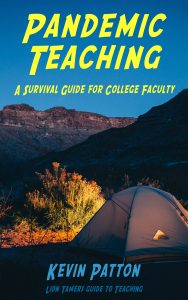| Casey Cainan at practice. http://lion8.us/f0nC0x |
One of my early mentors in wild animal training is an earnest student of the art of presenting animal acts in the circus. During his frequent monologues about what makes the most successful big cat trainers so successful he kept coming back to one central theme: practice, practice, practice.
When I'd bring up how fantastic this or that trainer's act was, he'd nearly always respond with, "yep, you can tell he (or she) practices a lot." Conversely, when I'd have a comment about an act being sloppy or boring or "falling apart" during a show, the response invariably included, "well that guy (or gal) never practices."
I guess this strikes the casual observer as a truism: practice makes perfect. Duh-uh . . . doesn't everybody already know that?! But in real life . . . apparently not. Or maybe everybody knows it but not everybody lives it. There were (and are) a lot of wild animals trainers who really don't practice . . . or at least not very much. And their acts were pretty unremarkable (unless they were remarkably awful).
The truly great big cat trainers are those who practice frequently. And, of course, their acts are polished and exciting and, well, often breathtaking.
It strikes me that so many teachers, and so many learners, have forgotten the central role of practice. Perhaps as educators, we are turned off by the "old fashioned" notion of drills and rote learning. And perhaps as learners, we are turned off by the idea of practice, especially repeated practice, as boring, boring, boring.
I can certainly empathize with those feelings. As a teacher, I want my lessons to be active and engaging . . . not boring and unimaginative. I want the learning done in my courses to become part of my students' long-term memory and integral to their ongoing ability to apply what they know and to solve problems creatively. And, alas, haven't we been told time and again that practice, practice, practice is passé?
However, my experience tells me that I can do both.
My successful outcomes for learning in my courses tells me that I can facilitate repeated practice while at the same time having my students engage in active learning. I think we need to be like the more successful lion tamers who know how to facilitate practice successfully. Rather than making rote learning the beginning and end of our teaching strategy, which I contend is truly old-fashioned, we can use active learning methods to promote repeated engagement with the concepts of the course.
For example, I no longer give frequent in-class tests and quizzes.I instead have my students engage in in-depth online tests. Because I use huge test banks with randomized question sets, they can attempt each test multiple times without getting the same set of questions. Because they want a good grade, and perhaps even because they really do want to learn the concepts, most of my students take all the attempts that they're allowed.
Although these tests do contain some strictly factual questions, most of the items require higher-order thinking skills. And many items require some additional research beyond what is immediately apparent in their class notes and in the textbook. These items ask students to apply concepts, to evaluate situations, and to dig deeply into the significance of each subtopic. They are tested on both details and "the big picture." By time they are ready to take my in class exams, they have had an extraordinary amount of practice in grappling with both the straightforward and the not-so-straightforward concepts and applications of the topics covered.
This is not rote learning. But it does involve a lot of practice, practice, practice.
And what is really great about this approach is that, although the students fully realize that they are spending a lot of time and are working very hard, they do not have the feeling of drudgery. They are fully engaged trying to solve problems, reveal the mysteries of a case study, and answer tricky questions.
This is just one of many examples of how repeated practice can be active and engaging. I'd love to hear your comments on ways you found to facilitate repeated practice without it being a dreaded, boring activity.


2 comments:
Very cool approach with the online tests! What site do you use for this? Do you have to make your own test question bank, or are some questions supplied for you?
Thanks for the note. At my school, we used WebCT but now have switched to Moodle for our learning management system (LMS). I've also used the approach in other learning systems. I use a program called Respondus, which creates the tests in an easy interface then allows you to upload it to your LMS. It even converts your test from one LMS system to another.
I use my own test items. It takes a lot of work to build it. But once you've done that, it's easy to maintain and edit/add/delete items. You could start with a publisher's test bank. Many of them are available as Respondus files but if not then Respondus allows you to import test items from a text file generated from the publisher's test bank.
See http://my-ap.us/qtAclX for a presentation on how I do it.
Post a Comment